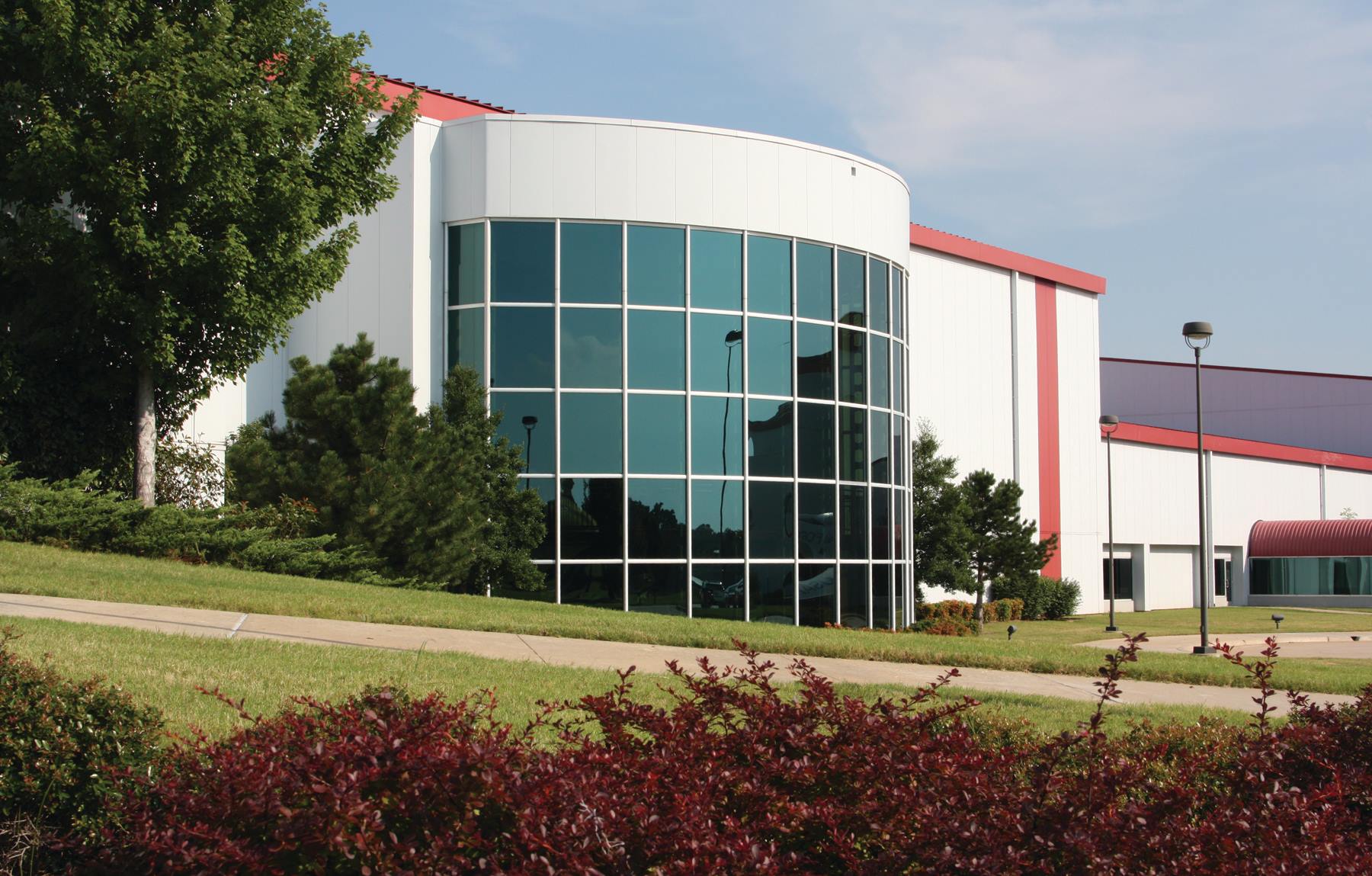
Tulsa Tech is Oklahoma’s largest career and technical education system serving thousands of students each year.
Technologies Used:
Services Used:
Tulsa Tech is Oklahoma’s largest career and technical education system. With seven locations, they serve thousands of students throughout Tulsa and surrounding communities. Though educating as many people as possible is a prime goal, Tulsa Tech also strives to provide career and technical education of the highest caliber. With numerous programs ranging from diesel engines to robotics, they cover the gamut of traditional and emerging technical skills.
It’s All About Logistics
As the largest network of tech centers in Oklahoma, Tulsa Tech owns a fair amount of technology. This includes thousands of computers, a vast catalog of software and an expansive data center to maintain it all. Tulsa Tech was by no means outdated or outclassed. Even so, they wanted to stay on the cutting edge of technology and deliver the best experience possible for their students.
At the time, the bulk of their challenges was in two areas: management and capability. With so many different machines to manage and no easy method of managing them from a remote, centralized location, there weren’t enough hours in the day for Tulsa Tech’s desktop support team to perform break-fix tasks and roll out the necessary updates to their technology. This became especially apparent at the end of each school year when they would have to replace hundreds of machines all at once.
There were also some logistical inconveniences when it came to setting up technology for different classes. As it stood, each time a new class took place, IT would first load the necessary software onto each machine in that classroom. Whenever a new class began in the same classroom, they would have to repeat this process all over again with different software. Given their high volume of classes, Tulsa Tech’s IT staff was constantly on the go.
Key Concerns
- Ease of management
- Remote access
- Less classroom interruption
Tulsa Tech didn’t want mere convenience, though. They also wanted the ability to run graphic-intensive programs on computers without overburdening IT budgets. Via traditional means, a classroom running these resource-heavy programs required a significant amount of equipment and resources. To remedy this, Tulsa Tech knew they needed not only new servers but a new way of managing their compute resources altogether, both in the data center and in the classroom.
Thinking Forward with VDI
Tulsa Tech understood that the answer to their server management challenges involved Virtual Desktop Infrastructure (VDI). Using VDI, they could easily and remotely manage thousands of desktops from a centralized location. This would result in some serious cost savings. Finally, virtualization would allow for considerable server resource conservation.
“After crunching the numbers on computer usage, we found that VDI would also allow us to greatly reduce the number of new computers we needed to buy with each annual refresh. That was another huge cost benefit for us.”
– Eric Guthrie, Assistant Director, ITS Infrastructure and Client Services
The question for Tulsa Tech then became which VDI solution to pursue and who would help them implement it. Tulsa Tech decided that InterWorks offered the most appealing Proof of Concept (POC) and selected us to guide them through the implementation process.
To show them firsthand what virtualization was capable of in their environment, InterWorks’ POC consisted of a 300-user pilot VDI solution. The VDI platform of choice was VMware’s Horizon View Enterprise, which includes a full stack of supporting applications such as vRealize Operations, App Volumes and User Environment Manager. The hardware supporting this solution was a Dell Compellent SC8000 storage array and several Dell PowerEdge hosts with NVIDIA GRID server-grade GPUs.
Immediate Results
After seeing how adeptly InterWorks’ VDI POC handled testing of different, graphics-heavy user profiles, Tulsa Tech was sold on the solution. Aside from drastically improved performance across the board, the biggest difference Tulsa Tech noticed with the POC vs. their old environment was the portability of the user experience. With App Volumes’ AppStacks and Writeable Volumes for application virtualization and profile data transport, users could sign into any desktop in their floating pool from any device, and their applications and data would follow them.
Improvements
- No more shifting classrooms
- Remote access from anywhere
- Greater graphics capabilities
This meant no more shifting classrooms, no more maxed out IT support rushing from task to task and, best of all, the ability for users to run the programs they need from anywhere – even graphics-intensive applications. This is great for students because they can now enjoy the same experience at home on their iPads as they do on a classroom desktop.
“With many of our departments spending more time out of the classroom and in the field, remote access has been a massive help. It’s also made it much easier when teaching multiple versions of software like Microsoft Office.”
– Eric Guthrie, Assistant Director, ITS Infrastructure and Client Services
Another added benefit to this new, efficient virtualization was that Tulsa Tech was now seeing greater cost savings per user at this scale. Combined with obvious time savings in their IT department and much-improved user experience, VMware Horizon View delivered the results they needed.
The Next Phase
With the POC forming the baseline of their new VDI environment, Tulsa Tech is moving forward with the larger VDI overhaul. InterWorks will be assisting every step of the way, adding another 1000 clients to their environment.
To support these users and update Tulsa Tech’s hardware, InterWorks added another Dell Compellent SC8000 storage array to match their existing one, only this one will be exclusively dedicated to server workloads. Even more impressive is that InterWorks and Tulsa Tech successfully condensed their environment down to six nodes in Dell FX2 blade chassis!
“Consolidation of our data center was a major improvement. We went from using two full racks for servers to only using half a rack. That extra room will be essential as we continue to expand our infrastructure in the future.”
– Eric Guthrie, Assistant Director, ITS Infrastructure and Client Services
InterWorks also made a lasting impact on Tulsa Tech’s backup and disaster recovery infrastructure. Central to this was migrating the organization to Veeam Availability Suite, an industry-leading backup product for virtualized workloads. In addition, InterWorks deployed a trio of DR4300 backup disk arrays. This new setup gives them three levels of backup and recovery, with one of those appliances existing outside of their data center. In a disaster-prone state like Oklahoma, having such safeguards in place is a wise move by Tulsa Tech and will ensure minimal interruption to resources in the event of a natural disaster or other potentially disruptive scenarios.
The Bigger Picture
It’s easy to see how the benefits from Tulsa Tech’s new (and soon to be expanded) VDI and backup solutions present to their IT department and general performance, but what’s the larger impact on student and staff day-to-day experience?
Student/Staff Impact
- Students learn without interruption
- Staff can focus more on teaching, less on tech
- Infrastructure can scale with growth
For students, the biggest benefit is their ability to learn without interruption and with greater ease. With seamless access to relevant applications and resources, technology is no longer an added distraction but a helpful learning tool. Similarly, teachers can now focus more on educating and less on troubleshooting technology. Modern education is a fast-paced environment that requires the support of fast-paced technology, and the solutions and continued advisement provided by InterWorks and partners will help to keep Tulsa Tech ahead of the curve.
“InterWorks is just a great group of people all around. Whether it’s on the technical side or the sales side, we know that they’ll work well with us on whatever we need.”
– Eric Guthrie, Assistant Director, ITS Infrastructure and Client Services


